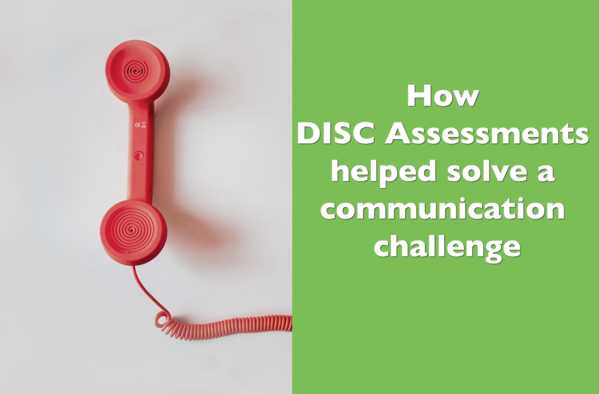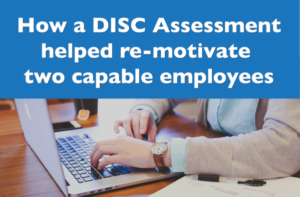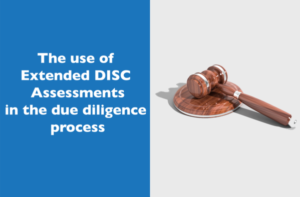Bill is the manager of a large retail outlet and reports directly to the organisation’s general manager. He oversees the administration of a store with around fifty employees, including department managers and administrative staff. Despite his experience and capability, Bill struggled to become effective as a well-liked and confident manager.
At the beginning of his role, Bill found it difficult to manage workplace relationships. His natural behavioural style was competitive, decisive, and strongly goal-oriented. Over time, he realised the importance of softening his approach, becoming more tolerant, and paying closer attention to others.
Bill’s profiles are shown opposite.
However, Bill continued to feel unmotivated by the challenges of his role. He felt a lack of independence and believed the position restricted his opportunities to be more flexible and versatile. These feelings were likely connected to stress.

George, the company’s general manager, was unsure why Bill seemed unhappy in a role he appeared perfect for. He had hired Bill because of his administrative expertise, not realising that Bill’s previous position required minimal communication with people outside of management. This was a significant shift for Bill in his new environment.
Bill wasn’t the only one facing this challenge. In another store, another manager named John had voiced similar concerns.

John had been chosen because of his sporting achievements, but he too felt his role did not provide the level of challenge he expected.
John’s profiles are shown opposite.
In John’s case, he believed he could not act as freely as he wanted to. He felt he needed to be more cautious and deliberate than he had been before taking on the role.
Would you like to discuss additional case studies, similar to this one?
Looking for Answers
George began to question his own management style and whether he was contributing to the issue. He reached out to an HR professional who specialised in Extended DISC® assessments.
The consultant obtained behavioural reports for all branch managers to identify any patterns. He also obtained George’s own behavioural profile.
Most of the ten other store managers showed they were working within their comfort zones, and George’s profile confirmed that he was also comfortable in his role. The challenge appeared to be specific to Bill and John.
Because the organisation had not previously used behavioural assessments, the results were eye-opening for George. The reports revealed what motivated Bill and John, what they naturally avoided, and where their strengths and development needs lay.
He discovered that both managers’ Profile I (perceived need to adjust) differed significantly from their Profile II (natural style). Their outward behaviour did not reflect who they truly were.
A Change in Perspective and Communication
With the insight provided by the Extended DISC® Reports, George adjusted his communication style. He provided both managers with more flexibility and tailored his interactions to better align with their natural behavioural preferences. This helped reduce stress and increase their engagement.
The company now keeps behavioural reports on file for all managerial staff. When George notices changes in a manager’s behaviour or motivation, he reviews the reports to understand what may be happening and responds accordingly.
He has since become a strong advocate for DISC Assessments and the valuable clarity they bring to leadership and communication.
Want Better Communication Across Your Leadership Team?
Use DISC Assessments to understand natural behavioural styles and tailor communication for stronger, more effective management.







